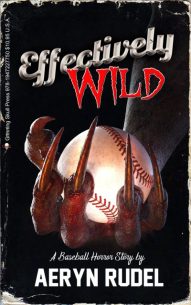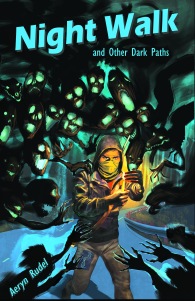When Should You Reply to a Rejection Letter?

Should you reply to rejection letters? A good question, and 99.9 % of the time my personal opinion is a resounding NO. The most compelling reason is that many publishers will straight-up tell you not to reply to a rejection in their submission guidelines, and we always follow the submission guidelines, right? That said, here are some reasons writers sometimes DO reply to a rejection letter (and my opinion why they shouldn’t).
- To say thank you for an encouraging, personal rejection. A nice thought, but I think it’s generally unnecessary. Editors receive a lot of emails, and there’s a chance you’ll just be cluttering up their inbox with a (well meant) thank you. I think it’s kind of implied that you appreciate the editor’s time and consideration of your story, but if you really feel you need to say thanks for some encouraging words, I’d put a short note in the cover letter for your next submission to the publication. I’ve done that once or twice.
- You disagree with feedback. If you get actual feedback in a rejection and disagree with it, just ignore it and move on. This is a subjective business, and there are times an editor is going to give you feedback that doesn’t work for you. Replying to “correct” the editor isn’t going to get you anywhere, and it might hurt you chances at future publications with the same market. Now if that feedback is just off-the-wall bonkers, you might avoid submitting to that publisher again. In general, though, save your arguing for feedback on a story that’s been accepted.
- Because they were rude. Were they, though? I’m sure editors have been rude to authors in rejection letters, but out of the many, many I’ve received not once has an editor been anything but professional. When I see authors getting upset over rejections it’s often because they received a short, to-the-point form rejection which they’ve interpreted as clipped, terse, or dismissive. Editors are busy folks, and sometimes all they have time for is a short “No thanks” or “Doesn’t meet our needs at this time.” Don’t take that stuff personally, and absolutely don’t send a snarky reply. Again, it’s not going to get you anywhere, and it’ll likely hurt your chances for future publications.
Now for the big question: When should you respond to a rejection?
In my career there has been only one instance where I felt it was appropriate to respond to a rejection letter. Here’s why. I received a rejection that wasn’t meant for me. The publisher made a mistake because my story and another author’s story had very similar titles (an understandable error). When I received the rejection and realized it wasn’t for my story, I replied with a polite “I don’t think this was meant for me” and received an immediate and professional apology rescinding the rejection. My story was eventually rejected, but the publisher’s professionalism in correcting the mistake definitely left a good impression. I’ll be submitting there again.
So, that’s my opinion on when you should respond to a rejection letter, i.e., almost never. I’m willing to be educated on this point, though, and it you know some good reasons to reply to a rejection (or disagree with my reasons not to), please tell me about them in the comments.






Having a group of writers to help you evaluate (or complain) feedback is great. I agree that for the most part, like you said, leave the editors alone. I wonder if some people think this happens:
Writer: Your comments were off and here’s why.
Editor: You’re so right! Here’s a contract.
I do think some writers believe that scenario is a possibility. I think you’re more likely to get a photo of Bigfoot riding a unicorn. 😉
I agree with you, Aeryn, but now I’m wondering: Do you respond to acceptances? I’ll be honest: I usually do just to say “thanks.” I’ll also send a “thank you” email if an editor lets me know that my piece or pieces have been published. But after reading the part about cluttering up editors’ inboxes, I’m beginning to wonder if it’s a good idea to do that.
A great question. Often times, in an acceptance, an editor will actually ask you for some piece of information, like a bio, your PayPal address, or something like that, so a reply is absolutely necessary. Even if they don’t ask for some piece of information, it’s different than a rejection, which is, in my opinion, the END of a conversation. An acceptance is the beginning of a conversation, and you will no doubt be communicating with that editor again for a number of reasons (proofing editorial changes, for example). Also, in this case, I think it’s good to let the editor know you received the email with a polite thank you.
I think this is great advice (and not dubious at all!), Aeryn, for what that’s worth. Once, when I was newish to fiction writing and got a very detailed but appreciative rejection from an editor I had a lot of prior contact with (though had never met him in person), I wrote a brief “thank you so much for all the time you spent reviewing my manuscript and suggesting improvements” kind of letter. IMHO, it wasn’t whingeing, begging, angry, or anything negative like that. I think that was probably okay; it still ‘feels’ like the right thing to have done. And, of course, if you somehow find you ‘know’ the editor but not to the extent that you’re a relative, close friend, or should otherwise disqualify yourself/your ms. from the submission/contest, then I think it might be okay. Case-by-case basis, as the saying goes, but generally ‘no,’ as with responding to a bad (book, movie, story) review.
I would say that first example I listed is more of a “you don’t need to” rather than a “you must never.” I mean, I can’t see an editor actually getting upset at someone offering heartfelt gratitude. Worst case scenario is your email just won’t get read.
I was wondering if I might propose an idea for your blog (or you can point me to the posts if you’ve already done something like this): Ask the Rejectomancer. For instance, I’ve just come up with a rejection letter question. It’s not a huge issue per se, but a niggling thing that just makes me wonder. And I’m good at worrying. Anyhow, just an idea. Keep doing what you do, Aeryn!
I generally open up the comments section on each post to questions, but, sure an “As the Rejectomancer” post might be fun. Go ahead and ask your question here; I don’t mind. Just remember that my answer will largely by my opinion, such is the way of rejectomancy. 😉
On rare occasions, if an editor is very positive about a rejected story and doesn’t like one or two points, I think you could send a letter offering to do a rewrite. That happened to me a while back. The market in question liked the story a lot, but they didn’t like the ending. So I offered to rewrite it, and they eventually agreed. I rewrote it, but they still rejected it again. Oh well. Nothing ventured, nothing gained.
Or if an editor really likes a story and can’t fit it in because they have too many stories already, perhaps you could offer to let them hold it for another issue.
In both cases I usually find that an editor will specifically ask for a rewrite or your permission to hold a story. But, hey, sometimes fortune favors the bold, as your example clearly indicates. 🙂
My rule is: Never respond to rejections. But like every good rule, I’ve broken it. Once. I had an editor as to hold a story. In the end, he rejected it, saying that it was one of the last ones to go. After that, he said that he would be delighted if I sent him a story for his next anthology, even if submissions weren’t open to the public.
I thanked him and said that I would. I’m not sure if it was the right thing to do, but I’ve also never been explicitly invited to submit, so, why not?
Alrighty then. Your opinion(s) gladly accepted, Aeryn.
As a matter of ‘inquiring minds want to know’ … I got a nice rejection letter recently from a top-tier market (at least t-t for me) that was beyond the form letter. I can’t remember what you call it in your classification system. In any case, they said some things that I did well and something I didn’t do well. They closed up with a standard “Good luck with your writing . . .” but what’s nagging me is that they didn’t say “and please submit again in the future” or something to that effect. Am I reading too much into it or is this a red flag to not submit there again? And are there really any red flags with the practice of Rejectomancy and its opposite (Acceptomancy, presumably!), unless someone sends you a cease and desist letter or you’ve clearly gone off the rails with something? Thanks much in advance, whether you’ve time or not (and if not, I totally understand. 11,xxx words a week is not an easy task! I hit that maybe a few weeks a year, probably.)
Hey, Leigh, sounds like a personal rejection from the editor, where he or she took the time give you some honest feedback. That’s always a good thing, especially from a top-tier market. If you get past the form letter stage and start getting personal rejections, then it’s very likely the editors have seen something they like in your writing.
I wouldn’t read much into this. I think it’s entirely possible that an editor would believe the “submit again” is implied in a personal rejection. That said, unless they ask you stop sending stories, submit again, and again, and again, and again . . . 🙂
Reblogged this on I Have No Idea What I'm Doing and commented:
As usual, I had no idea what I was doing, but this blogger sure does.
Even a well-meant thankyou email can waste an editor’s precious time.